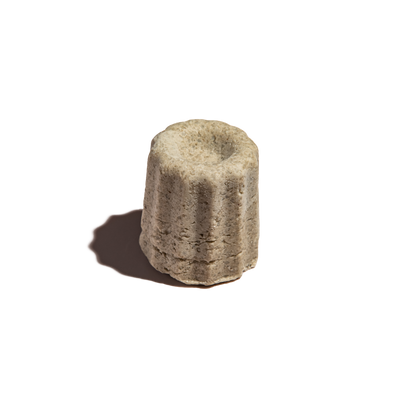Is your skin dehydrated?
Let’s first establish this – dehydrated skin is NOT the same as dry skin. The former is a temporary condition, while the latter is a skin type. Dehydrated skin is lacking in water, while dry skin lacks natural oils (sebum). Dehydration can happen to any skin type because of external factors. Read on to find out how to identify if your skin is dehydrated, what causes it and how you can work on improving your hydration game!

Do you have dehydrated skin?
Dehydrated skin means that your skin and overall body system is lacking water. It’s a simple formula: If you lose more water than you consume, you will end up with dehydration which will affect you internally AND externally. This can happen to you even if you have an oily skin type! Here are some common signs of dehydrated skin:
- Dry and itchy patches (even flakiness)
- Meh looking complexion
- Visible fine lines
- Shadows around the under eyes and nose
- Overall uneven skin tone
Apart from your skin, dehydration can also be felt generally with dizziness, dry mouth, weakness and dark urine.
Testing time!
You can do a simple Turgor Test, aka the skin pinch test to determine if your skin is dehydrated. This was demonstrated on a viral Tiktok vid and many Tiktok users were alarmed at their hydration levels!

Dr Raj (@dr.karanr) explaining the skin pinch test
Take a small portion of your skin on your arm or abdomen and pinch lightly. Does your skin bounce back within a second or two?
If you answered no, darling go grab yourself a big glass of water. Like right now! How rapidly your skin snaps back in place is a good sign of your hydration levels as normal healthy skin will snap back rapidly into place.
What causes dehydration of your skin?
Inadequate water intake – nuff said.
High sugar and sodium diet 🧁
Eating too much sugar and salt can draw on your body’s water supply. According to Verywell Health, too much sugar in the blood prompts the body to pull fluid from cells in order to produce enough urine to remove the sugar, which in turn makes skin dry. Did you know that certain dermatological problems such as dry, itchy skin and fungal infections are amongst the first signs of diabetes so do consult a dermatologist if you notice any unusual changes in your skin!
Age
As we age, our skin produces less sebum - an oil that keeps skin elastic and youthful. Sebum levels typically worsens after turning 40.

Hormonal changes 😑
Our menstrual cycles affect the body’s estrogen levels, and according to derms, your estrogen and progesterone levels are at their lowest when your period starts, and can persist for up to a week after it ends. It is during this time that your skin is most prone to dryness.
Medication 💊
Both oral and topical treatments can induce excessive dryness of your skin. Oral medications such as isotretinoin ( popular acne medications such as Accutane), topical retinoids (Vitamin A ointments), diuretics (blood pressure) and chemotherapy are some examples.
Wrong skincare
Another cause for dehydrated skin is the use of harsh skin care products that can strip your complexion of natural oils, allowing water to escape. The excessive use of chemical ingredients such as benzoyl peroxide, retinoids and salicylic acid can punish the skin, leaving it vulnerable to water loss. Products with alcohol denat should also be approached with caution.
How to treat it?
While dehydrated skin can be worrying, it is quite easy to treat with the right lifestyle changes. Treatment begins from the inside out to replenish and maintain elasticity throughout your body. Here are some great ways to hydrate your skin:
Eat water-rich foods

Opt for foods with loads of water and antioxidants. Juicy fruits like watermelons, oranges, papayas and leafy green vegetables.
Wear sunscreen daily

Exposure to the sun will cause dehydration of your skin, destroy collagen and reduce skin elasticity. Remember to apply one with a minimum of SPF30 and keep reapplying if you’re spending long hours under the sun! We have a great range of mineral, coral-safe sunscreen here
Maintain a hydration boosting skincare regime
The best option is to cleanse your skin with natural products that encourage water retention, such as the HA Hydrating Booster Serum 2.5% and the Oasis Essential Moisture Oil (also with Hyaluronic Acid!). These hydration boosting skincare helps to regulate skin moisture levels and improve elasticity. You can also avoid midday dryness by carrying a bottle of facial mist with you to spritz whenever you feel any tightness on your face. This is especially beneficial if you are often in air conditioned environments.
Avoid long steamy showers
Hot showers can reduce sebum production and dry out your skin. Instead, opt for lukewarm water and keep your bath time to less than 10 minutes.
Drink water regularly
This is basic. If you work out, remember to take a few sips every 20 minutes at minimum.









Leave a comment